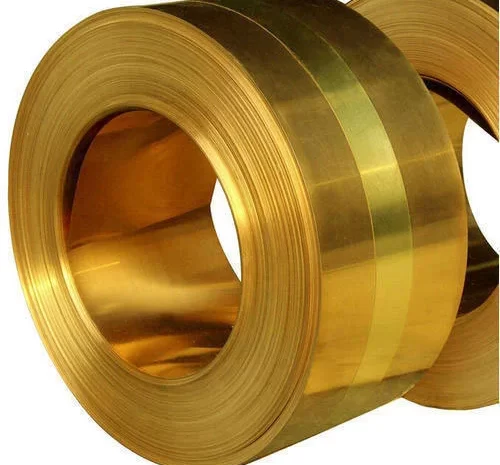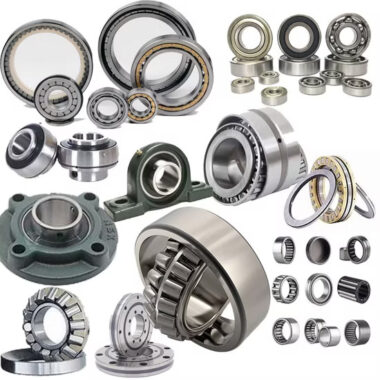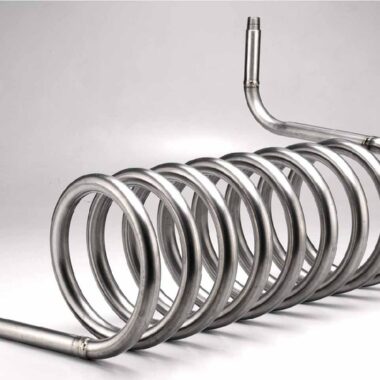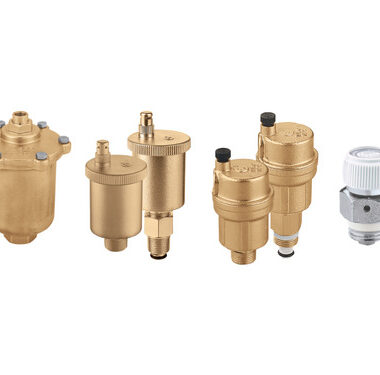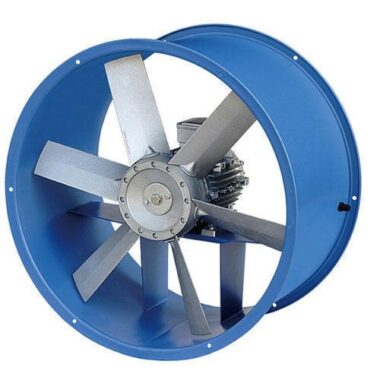Brass Tube Sheets
Introduction
Brass tube sheets are an integral component in many industrial heat exchangers, particularly those utilizing a shell-and-tube design. These tube sheets serve as the critical interface between the tube bundle and the shell, ensuring that the tubes stay securely in place and maintain a tight seal. The material composition of brass, mainly copper and zinc, provides several advantages in demanding applications. Brass’s excellent corrosion resistance, especially in seawater and acidic environments, makes it highly suitable for industries such as chemical processing, power generation, marine, HVAC systems, and more. Brass tube sheets are able to withstand extreme temperatures and pressures, which is essential for the efficient transfer of heat in systems where fluid temperatures can fluctuate. In addition to their physical durability, brass tube sheets contribute to the overall reliability of heat exchangers by maintaining leak-free operation, minimizing downtime, and reducing maintenance costs.
Key Features and Uses of Brass Tube Sheets:
- Material Composition and Properties:
- Brass tube sheets are primarily made from brass alloys, which are known for their corrosion resistance, especially in marine and chemical environments.
- Brass has excellent thermal conductivity, which is essential for efficient heat exchange.
- It also has good machinability, making it easier to manufacture and customize the tube sheets for specific applications.
- Role in Heat Exchangers:
- Brass tube sheets are used to hold the tubes in place and separate the fluid channels in shell-and-tube heat exchangers. They ensure that the fluid flows through the tubes while maintaining a seal between the tubes and the shell.
- These tube sheets help in preventing fluid leakage and allow for easy maintenance and replacement of tubes if necessary.
- They also play a role in maintaining the overall structural integrity of the heat exchanger.
- Corrosion Resistance:
- Brass, especially when combined with other elements like lead or tin, offers good resistance to corrosion, particularly in acidic or alkaline environments.
- This makes brass tube sheets ideal for use in industries such as chemical processing, oil and gas, marine applications, and cooling systems, where corrosion resistance is essential to ensure longevity and prevent costly maintenance.
- Thermal Efficiency:
- Brass’s high thermal conductivity ensures efficient heat transfer between the fluids inside the tubes and those in the shell.
- Brass tube sheets help optimize the thermal performance of heat exchangers by effectively transferring heat without losing efficiency.
- Customization and Manufacturing:
- Brass tube sheets can be easily customized to suit various heat exchanger designs and sizes. They are typically manufactured to meet specific industry standards for heat exchangers, ensuring compatibility with different tube and shell configurations.
- They are machined with holes for tubes, which are precisely aligned to ensure proper fluid flow and heat transfer.
Applications of Brass Tube Sheets:
Brass tube sheets are versatile components, essential for maintaining the efficiency and durability of heat exchangers across a wide range of industries. Below are some of the most common and specialized applications for brass tube sheets:
- Shell-and-Tube Heat Exchangers in Industrial Systems:
- Chemical Processing Plants: Brass tube sheets are ideal for handling the aggressive chemicals typically found in industrial processes. In these environments, where acidic or alkaline fluids may be in contact with the tubes, brass’s corrosion resistance is crucial. Brass tube sheets help seal the tube and shell, preventing leaks and ensuring that the heat exchanger functions properly in harsh chemical environments.
- Oil and Gas Industry: In oil refineries and petrochemical plants, heat exchangers are essential for heating and cooling various substances, including crude oil and refined products. Brass tube sheet provide a durable solution that can withstand the high temperatures and pressures commonly encountered in oil and gas processing, reducing maintenance costs and downtime.
- Marine Applications:
- Seawater-Cooled Heat Exchangers: Brass tube sheet are particularly valuable in marine environments where equipment is exposed to seawater. Due to their resistance to seawater corrosion, brass tube sheets are widely used in marine heat exchangers, which are responsible for maintaining the temperature of ship engines and other critical systems. These heat exchangers are often part of cooling systems in naval ships, cargo vessels, and offshore rigs.
- HVAC (Heating, Ventilation, and Air Conditioning) Systems:
- Chillers and Refrigeration Systems: Brass tube sheet are often used in HVAC systems, especially in industrial-scale refrigeration and chiller systems. These systems require effective heat exchange between refrigerants and other coolants, and the durability of brass tube sheet ensures that the system continues to function without leakage, even under high-pressure and low-temperature conditions.
Future Innovations in Brass Tube Sheets:
The future of brass tube sheets lies in continuous improvements to materials, design, and functionality. As industries demand more efficient and environmentally friendly solutions, innovations are likely to emerge in the following areas:
- Enhanced Corrosion Resistance:
- Alloy Development: Researchers may develop brass alloys with even better resistance to corrosion, particularly in aggressive or highly corrosive environments, such as in the presence of chlorides (found in seawater) or industrial chemicals. This would increase the longevity and performance of brass tube sheet in marine, chemical, and wastewater treatment industries.
- Coatings and Surface Treatments: Future innovations might involve advanced coatings or surface treatments to enhance the corrosion resistance of brass tube sheets further. For example, adding protective layers that are resistant to fouling, scaling, and corrosion can significantly extend the life of brass tube sheet in critical applications.
- Optimized Thermal Conductivity:
- Improved Heat Transfer Efficiency: Innovations in material engineering could lead to the development of brass alloys with optimized thermal conductivity, helping heat exchangers achieve better heat transfer rates. This would make systems more energy-efficient and capable of handling higher heat loads.
- Microstructured Surfaces: The development of micro- or nanostructured surfaces on brass tube sheet could enhance heat exchange efficiency by increasing the surface area and promoting better fluid turbulence. This would improve overall thermal performance, especially in high-efficiency heat exchangers used in industries such as power generation and pharmaceuticals.
- Eco-Friendly Alternatives and Sustainability:
- Sustainable Brass Production: As environmental concerns grow, the focus on sustainable production methods will increase. Innovations in brass recycling and the reduction of harmful byproducts during manufacturing could make brass tube sheet even more eco-friendly. Brass’s long lifespan and recyclability make it an excellent candidate for sustainable manufacturing practices.
- Biodegradable Coatings: To address environmental concerns, future brass tube sheet may feature biodegradable coatings or corrosion-resistant treatments that reduce their impact on the environment. This would be particularly beneficial for industries looking to minimize their ecological footprint.
Conclusion
As the demand for energy-efficient and sustainable solutions continues to rise across various industries, brass tube sheets remain an essential part of heat exchanger technology. Their combination of corrosion resistance, thermal conductivity, and structural strength ensures that they continue to perform effectively under challenging conditions, from chemical plants to marine engines. As industries evolve, the materials and manufacturing methods used to produce brass tube sheets will also continue to improve, driving future innovations. Developments such as enhanced alloy compositions, protective coatings, and advanced manufacturing techniques like 3D printing will further elevate the performance, reliability, and sustainability of brass tube sheets. With these advancements, industries can expect longer lifespans for their heat exchangers, reduced maintenance costs, and enhanced efficiency in heat transfer, all of which contribute to more sustainable and cost-effective operations in the long term.


